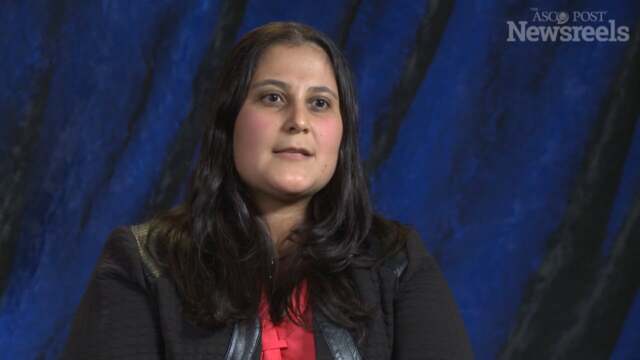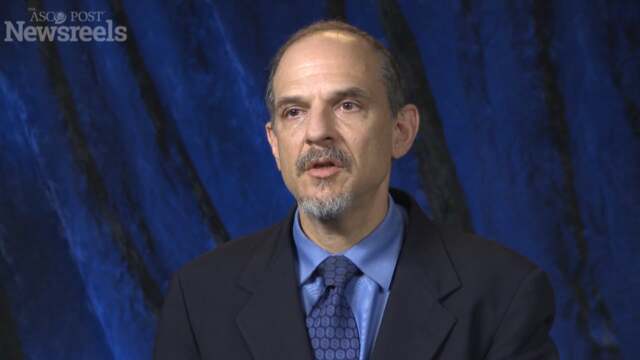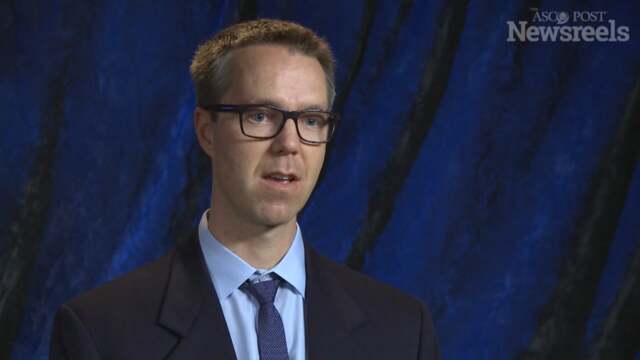Jennifer S. Temel, MD, on The Changing Conversation Around Prognostication
2016 Palliative Care in Oncology Symposium
Jennifer S. Temel, MD, of Massachusetts General Hospital, discusses increasing prognostic uncertainty in light of targeted treatments and immunotherapies, and the difficulty predicting who will benefit.
Joseph A. Greer, PhD, of Massachusetts General Hospital, discusses the development of a mobile application to address treatment adherence and symptoms (Abstract 104).
Areej El-Jawahri, MD, of Massachusetts General Hospital, discusses ways in which palliative care can reduce symptoms, improve quality of life, reduce depression and anxiety, and potentially optimize end-of-life care for patients with hematologic malignancies.
Sriram Yennu, MD, of The University of Texas MD Anderson Cancer Center, discusses findings from a study of an international cohort of patients with advanced cancer who received palliative care. Nearly half the patients incorrectly believed their cancer was curable (Abstract 5).
Charles D. Blanke, MD, of the Oregon Health & Science University and Southwest Oncology Group, discusses the nearly 20 years’ experience with Oregon’s Death With Dignity (DWD) Act, a voter initiative that led to the first such law enacted in the United States (Abstract 44).
Eric Roeland, MD, of the University of California, San Diego, discusses the key papers presented at this year’s Palliative Care in Oncology Symposium.





